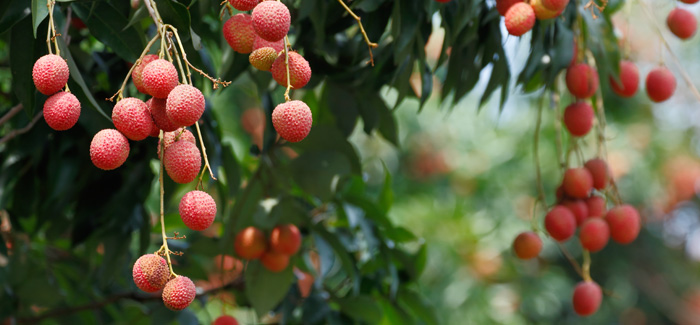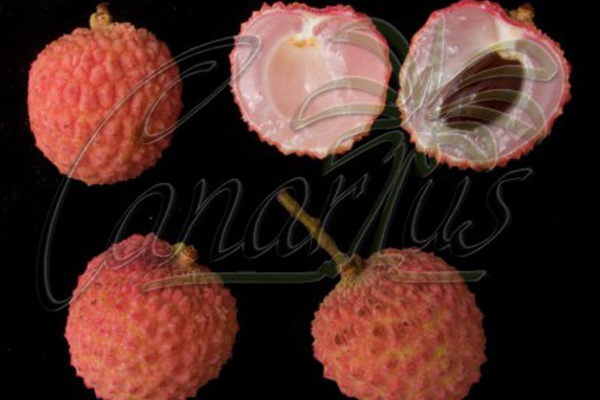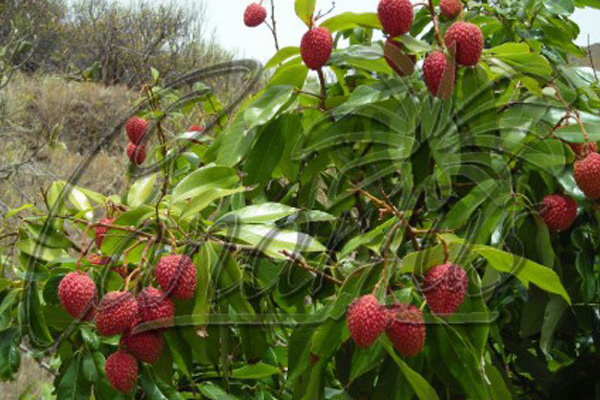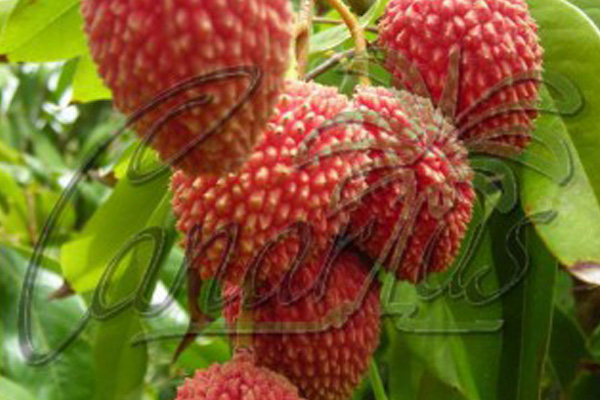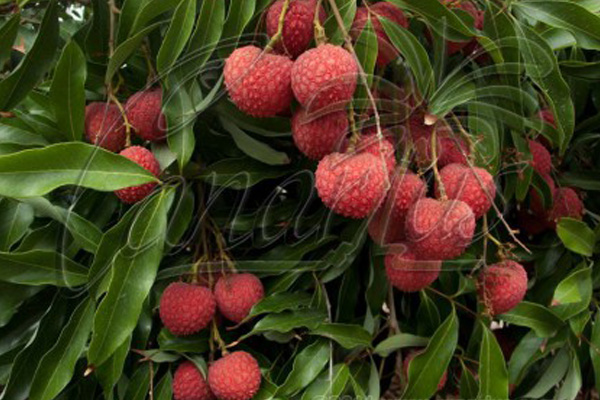Lychee is a subtropical evergreen tree native to eastern China, where it has been cultivated for thousands of years. The tree has a medium size reaching up to 2-3 m (6-8 ft).
Its fruit is smooth, aromatic and juicy inside the thin, rough, slightly spiky and leathery pink to red shell. Litchi chinensis has a small inedible brown seed. Rich in vitamin C, it is available mainly in mid-summer. Eaten fresh, used in fruit salads, also bottled, canned, frozen and dried (lychee nuts).
At Canarius we have Litchi chinensis. This variety thrives and fruits regularly in the warmer coastal Mediterranean. It does not grow well in the tropics, because it needs cool winters, with temperatures below 12º C in order to induce flowering. It only takes short, light frost.
LITCHI CHINENSIS KWAI MAI PINK
The “cold-hardy” lychee tree. This Chinese lychee variety produces fruits in cooler locations and and fruits very late, in mid-summer. Fruits are greenish-pink and quality is very good.
LITCHI CHINENSIS EARLY LARGE RED
The variety “Early Large Red” has a fruit slightly more than 2,5 cm (1 “) long, usually obliquely heart-shaped, crimson, with green interspaces, very rough, skin very firm and leathery, adhering slightly to the flesh. Flesh greyish-white, firm, sweet and flavourful. It is a moderate bearer, early in season.
LITCHI CHINENSIS TAI SO
“Tai-so” is a vigorous chinese cultivar of Lychee. It produces regularly and abundantly. The fruit is sweet, pink to red. It is also called Mauritius Lychees in the western trade, but also Hong Huey or Hong Huay, Da Zao and Tai Tsao in Asia.
LITCHI CHINENSIS KAIMANA
One of the best tasting large lychees. It is a subtropical perennial tree native to eastern China where it has been cultivated for thousands of years. The tree has a medium size reaching up to 2-3 m (6-8 ft). Its fruit is smooth, aromatic and juicy inside the thin, rough, slightly spiky and leathery pink to red shell.
The variety “Kaimana” has a large fruit, deep-red, of high quality, and the tree is a regular bearer. Lychee thrives and fruits regularly in the warmer Mediterranean. It needs cool winters, with temperatures below 12º C.
Here we present some of the newest in our online shop:
















